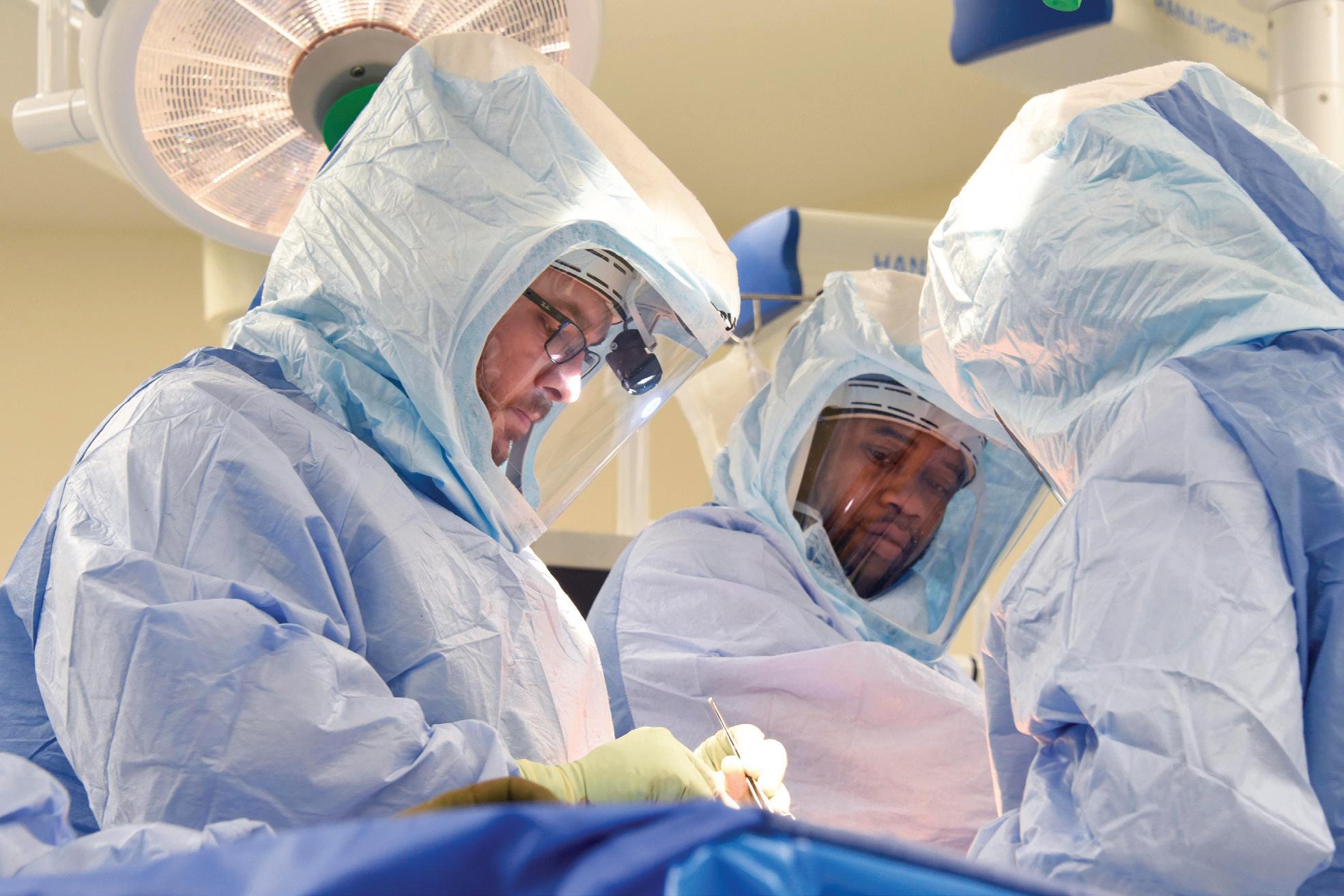
2 minute read
McLeod Health: Time for a New Knee
from July 2021
by VIP Magazine
TIME FOR A NEW KNEE
SIGNS, SYMPTOMS & NEXT STEPS
Advertisement
story by Dr. Chad Thurman, McLeod Orthopaedics
A knee replacement is a very effective treatment for many patients with arthritis, which is one of the most common causes of knee pain in adults and can lead to poor mobility. Determining whether a knee replacement is right for you requires careful evaluation and consultation with your orthopedic surgeon. Before deciding that a knee replacement is the best option for you, your doctor may try more conservative treatment, including non-steroidal antiinflammatory drugs such as Motrin or Aleve, steroid injections into the joint, physical therapy, weight loss or nutritional supplements. The primary goal of a knee replacement is to relieve pain associated with arthritis. The majority of total joint replacements are performed on people suffering from osteoarthritis, which largely results from wear and tear on the joints. You may be a candidate for a knee replacement if you have the following symptoms: knee pain that keeps you awake at night, knee pain that sidelines you from activities, and knee pain that limits daily functions such as climbing stairs. If your conservative treatment of chronic knee pain is no longer working, then it may be time to consider a knee replacement. Most people who need a knee replacement are adults over the age of 60, but ultimately, each individual must weigh the potential benefits of pain relief with the potential risks of surgery. However, as the longevity of knee replacements improve, more patients are having knee replacement surgery at a younger age. The first step is to have a medical exam with an orthopedic specialist. Weight-bearing X-rays can usually help your doctor determine the condition of the knee. Knowing the condition of the knee prior to surgery helps your doctor determine how much improvement you can expect after surgery. Knee replacement surgery involves removing the damaged cartilage and abnormal bone and replacing all or part of the knee joint with an artificial joint. After surgery, physical therapy is often ordered to help
Dr. Chad Thurman (left) and Gerald Rose, a McLeod surgical technologist, perform orthopedic surgery at McLeod Regional Medical Center.
restore the strength and range of motion of the knee. Most individuals are back to their everyday activities within two to three months after surgery, but recovery depends on many factors such as age, weight, and activity level prior to surgery. Thanks to modern technology, including robotassisted surgery and advances in the metals and plastics used in joint replacement materials, there are significant improvements in recovery and post-operative pain management for knee replacements. Knee replacement is one of the most effective and reliable medical procedures performed. It can significantly reduce pain and improve your ability to move.
Determining whether knee replacement surgery is right for you requires careful evaluation and consultation with an orthopedic surgeon.
Dr. Chad Thurman is an Orthopedic Surgeon at McLeod Regional Medical Center. Dr. Thurman cares for patients at McLeod Orthopaedics in Florence. He specializes in total joint replacement of the knee and hip and performs direct anterior hip replacements. Dr. Thurman is accepting new patients. For more information, call 843-777-7900.

Dr. Chad Thurman












